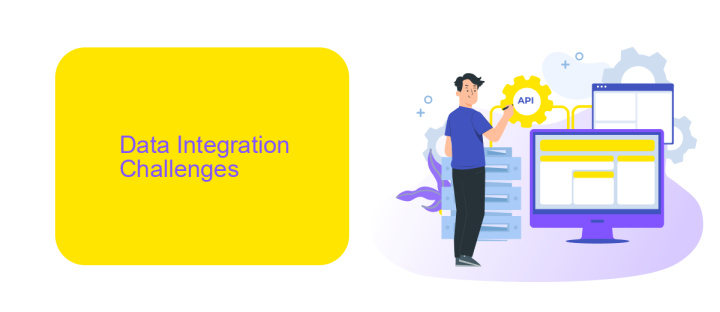Complex Data Integration
Complex data integration is a critical process in modern data management, enabling organizations to combine disparate data sources into a cohesive and unified view. This integration is essential for accurate analytics, informed decision-making, and streamlined operations. By leveraging advanced techniques and technologies, businesses can overcome challenges associated with data variety, volume, and velocity, thus unlocking valuable insights and driving innovation.
Introduction
In the modern digital landscape, the integration of complex data from multiple sources has become a critical task for businesses aiming to stay competitive. Effective data integration not only enhances decision-making processes but also ensures that organizations can leverage their data assets to their fullest potential. However, the complexity of integrating disparate data systems presents significant challenges that require robust solutions.
- Data consistency and accuracy
- Real-time data processing
- Scalability and flexibility
- Security and compliance
One of the key players in simplifying complex data integration is ApiX-Drive, a service that automates the connection between various applications and services. By providing a user-friendly interface and powerful automation tools, ApiX-Drive enables businesses to seamlessly integrate their data sources, ensuring that they can focus on deriving insights rather than managing data flows. This makes it an invaluable tool for any organization looking to streamline their data integration processes.
Data Integration Challenges

Integrating complex data from multiple sources presents several challenges. One of the primary issues is data inconsistency, where different systems may have varying formats, structures, and standards. This inconsistency can lead to difficulties in data mapping and transformation, making it hard to achieve a unified view. Additionally, data quality is often compromised due to errors, missing values, and duplicates, which require significant effort to clean and standardize. Security concerns also arise, as integrating sensitive data across platforms necessitates robust encryption and access control measures to prevent unauthorized access and data breaches.
Another challenge is the scalability of the integration process. As the volume of data grows, traditional integration methods may become inefficient and slow. Leveraging automated integration services like ApiX-Drive can help mitigate these issues. ApiX-Drive offers a user-friendly platform that simplifies the integration process by providing pre-built connectors and automated workflows. This reduces the manual effort required and ensures seamless data flow between systems. However, even with such tools, continuous monitoring and maintenance are essential to address evolving data integration needs and ensure ongoing data accuracy and reliability.
Complex Data Integration Techniques

Complex data integration is essential for modern businesses to leverage vast amounts of information from various sources. Effective techniques ensure seamless data flow and accuracy, enabling better decision-making and operational efficiency.
- ETL (Extract, Transform, Load): This traditional method involves extracting data from different sources, transforming it into a suitable format, and loading it into a target database.
- API Integration: APIs allow different software systems to communicate and share data in real-time. Tools like ApiX-Drive simplify API integration, providing a user-friendly platform to connect various applications without extensive coding.
- Data Virtualization: This technique enables users to access and manipulate data without needing to know its physical location or format, offering a unified view of diverse data sources.
- Data Warehousing: Centralizing data from multiple sources into a single repository helps in efficient querying and reporting, facilitating comprehensive data analysis.
By employing these techniques, organizations can ensure that their data integration processes are robust and scalable. Services like ApiX-Drive further streamline the integration process, allowing businesses to automate workflows and integrate applications seamlessly, thereby enhancing overall productivity.
Case Studies and Practical Applications

Complex data integration has become a critical aspect for businesses aiming to streamline operations and enhance decision-making processes. By effectively integrating diverse data sources, organizations can gain comprehensive insights and improve their overall performance. This section explores practical applications and case studies that highlight the significance of complex data integration.
One notable example is a retail company that successfully integrated various data sources, such as sales, inventory, and customer feedback, to optimize their supply chain management. By leveraging data integration tools like ApiX-Drive, the company was able to automate data flows between different platforms, ensuring real-time updates and reducing manual errors.
- Healthcare: Integrating patient records, treatment plans, and billing information to provide holistic care and improve patient outcomes.
- Finance: Consolidating data from multiple financial systems to enhance risk management and compliance reporting.
- Marketing: Combining data from social media, CRM, and email marketing platforms to create targeted and personalized campaigns.
These case studies demonstrate the transformative potential of complex data integration across various industries. Tools like ApiX-Drive facilitate seamless integration, enabling businesses to harness the power of their data and drive innovation. By adopting such solutions, organizations can achieve greater efficiency, accuracy, and strategic insights.
- Automate the work of an online store or landing
- Empower through integration
- Don't spend money on programmers and integrators
- Save time by automating routine tasks
Conclusion
In conclusion, the integration of complex data is a crucial aspect of modern business operations. It enables organizations to combine disparate data sources into a unified system, thereby enhancing decision-making processes and operational efficiency. The challenges associated with data integration, such as data inconsistency and security concerns, can be effectively managed through advanced integration platforms and methodologies.
One such solution is ApiX-Drive, a service that simplifies the process of connecting various applications and automating data workflows. By leveraging ApiX-Drive, businesses can ensure seamless data integration without the need for extensive technical expertise. This not only reduces the time and cost associated with manual data handling but also improves data accuracy and reliability. As businesses continue to adopt more complex data ecosystems, tools like ApiX-Drive will play an increasingly vital role in maintaining data integrity and driving innovation.
FAQ
What is complex data integration?
Why is complex data integration important for businesses?
What challenges are commonly faced in complex data integration?
How can businesses automate and streamline the complex data integration process?
What are the benefits of using an integration platform like ApiX-Drive?
Do you want to achieve your goals in business, career and life faster and better? Do it with ApiX-Drive – a tool that will remove a significant part of the routine from workflows and free up additional time to achieve your goals. Test the capabilities of Apix-Drive for free – see for yourself the effectiveness of the tool.


